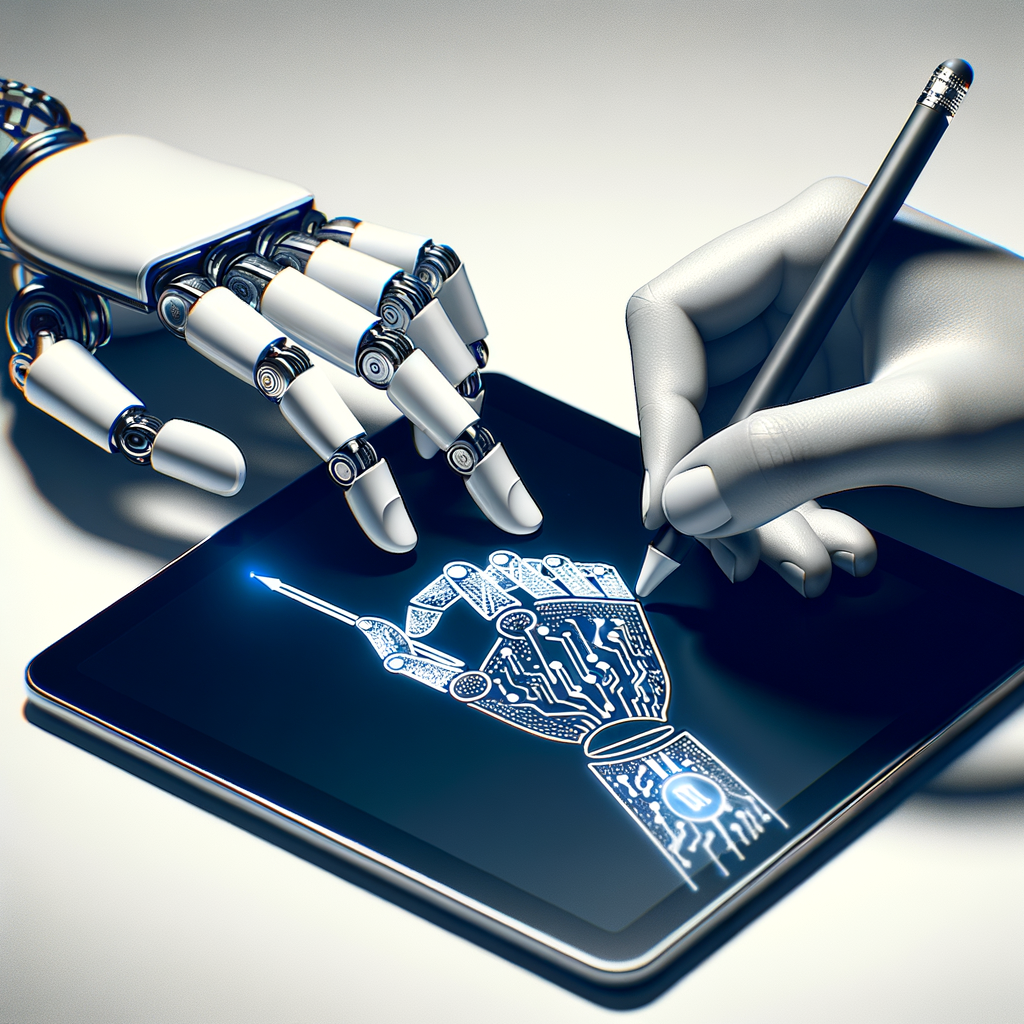
Revolutionizing Education with AI: Teaching the Machines to Teach
Explore the transformative role of artificial intelligence in reshaping the educational landscape. This blog delves into how AI technologies are being integrated into learning environments, tailoring education to individual students' needs, and automating administrative tasks for educators. Discover the future of AI-driven education systems and their potential to deliver personalized learning experiences across the globe.
Revolutionizing Education with AI: Teaching the Machines to Teach
Introduction
The integration of artificial intelligence (AI) into various sectors has led to groundbreaking changes, and the education sector is no exception. As schools, colleges, and educational institutions around the world explore the potential of AI, we're witnessing a paradigm shift that could redefine how knowledge is imparted and acquired.
In this blog post, we'll discuss how AI is revolutionizing education by tailoring learning experiences to individual needs, automating routine educational tasks, and enabling educators to focus more on what matters most – teaching and personal mentorship.
AI-Enhanced Personalized Learning
Personalized learning is an approach that seeks to customize education according to individual student's strengths, weaknesses, and interests. AI plays a crucial role in this by leveraging data about a student's learning habits to provide tailored recommendations and feedback.
Smart tutoring systems analyze student responses in real-time and adjust the difficulty of tasks accordingly. These systems can detect if a student is struggling with a particular concept and provide additional resources or tips, mimicking a personalized learning experience that would typically require a human tutor.
Case Study: Smart Tutors
Consider the example of Ivy League schools that have started pilot programs with AI-based tutoring systems. These systems not only help in academic settings but also offer assistance in extracurricular activities, broadening the scope of student development.
Automating Administrative Tasks
Educators spend a significant amount of time on administrative tasks such as grading, scheduling, and reporting. AI helps automate these tasks, freeing up valuable time for teachers to focus on instruction and mentoring.
For instance, AI-powered grading systems can quickly evaluate standardized tests or essays, providing feedback and suggestions for improvement. Additionally, AI can assist in curriculum planning by analyzing educational content and suggesting adjustments based on new teaching standards or technological advancements.
The Rise of AI Administrative Assistants
AI applications such as Google Classroom and Microsoft Teams have incorporated administrative AI bots that streamline tasks associated with class management, enhancing productivity and efficiency within educational settings.
Enhancing Learning with VR and AI
Virtual reality (VR) coupled with AI has opened new avenues for immersive learning experiences. By creating simulated environments, students can experience historical events, participate in virtual lab experiments, or explore remote locations from the comfort of their classrooms.
AI enhances these experiences by adapting scenarios based on student interactions, thus promoting deeper understanding and retention. Through VR and AI, education transcends traditional classroom boundaries, providing insights that were previously inaccessible.
Bridging Cultural and Language Barriers
One of the significant challenges in global education is the language barrier. AI-powered language processing tools facilitate translation and interpretation in real-time, allowing students from diverse linguistic backgrounds to engage equally in educational content.
Such advancements in natural language processing (NLP) also enable the creation of interactive language learning modules, where students can practice and enhance their communication skills effectively.
Ethical Considerations in AI Education
While the integration of AI in education offers numerous benefits, it's crucial to address the ethical implications. Concerns about data privacy, bias in AI algorithms, and the digital divide must be critically evaluated.
Educational institutions must ensure transparency in how AI systems are used. Policies must be instituted to protect student data and provide equal access to technology for students from all socio-economic backgrounds.
Future Prospects of AI in Education
As AI technologies continue to evolve, their potential impact on education could be profound. From predictive analytics that help institutions anticipate student needs to AI-driven career counseling, the future promises a more customized, efficient, and inclusive education system.
However, for AI to succeed in education, collaboration between educators, technologists, and policymakers is essential to address challenges and maximize benefits.
Conclusion
AI holds the promise of transforming education into an adaptive, efficient, and inclusive system that caters to individual needs while freeing up educators to focus on teaching and mentoring. As AI tools continue to evolve and mature, their integration into the educational landscape will likely become more seamless, ultimately benefiting educators and learners alike.
The journey of AI in education is just beginning, and what lies ahead is a future filled with possibilities. As we continue to explore and harness the power of AI, the dream of a personalized learning experience for every student worldwide comes closer to reality.